DISCLAIMER* has been nominated in three categories at the 82nd Golden Globes Awards. Cate Blanchett earned her 13th Golden Globe nomination overall, this is her second time being nominated in the TV category after MRS. AMERICA (2020). Her most recent nomination and win is for Best Actress in a Motion Picture Drama for TÁR (2022).
A behind the scenes documentary on RUMOURS will be released early 2025 as stated in the description of the tone reel by Right Off Films. The documentary is directed by Dashiell Upton. RUMOURS which is directed by Guy Maddin, Evan Johnson and Galen Johnson is currently in cinemas in Australia, UK, and Ireland.
New interviews on DISCLAIMER* and RUMOURS and the conversation with the filmmakers and star of ‘The Lord of the Rings: The War of the Rohirrim’ moderated by Cate on 2 December is now available to watch.
Thank you to Meryl S. and Katie for their donation to the site.
Golden Globes will air live on CBS on Sunday, Jan. 5 at 8 p.m. ET and stream on Paramount+.
Best Television Limited Series, Anthology Series, or Motion Picture Made for Television
Baby Reindeer
Disclaimer
Monsters: The Lyle and Erik Menendez Story
The Penguin
Ripley
True Detective: Night CountryBest Performance by an Actress In a Limited Series, Anthology Series, or a Motion Picture Made for Television
Cate Blanchett, Disclaimer
Jodie Foster, True Detective: Night Country
Cristin Milioti, The Penguin
Sofía Vergara, Griselda
Naomi Watts, Feud: Capote vs. The Swans
Kate Winslet, The RegimeBest Performance by an Actor in a Limited Series, Anthology Series, or a Motion Picture Made for Television
Colin Farrell, The Penguin
Richard Gadd, Baby Reindeer
Kevin Kline, Disclaimer
Cooper Koch, Monsters: The Lyle and Erik Menendez Story
Ewan McGregor, A Gentleman in Moscow
Andrew Scott, Ripley

At last, a film about the G7. There have been more movies than you can shake a stick at set in the Oval Office and No. 10 and other citadels. But not once has cinema gathered democracy’s prime septet in the same frame, the way the annual Group of Seven summit does. Until Rumours.
To play the leaders of the free world at this geopolitically sensitive moment, Rumours has attracted stars of magnitude. Cate Blanchett is the German chancellor, Charles Dance the American president. Roy Dupuis plays Canada’s pin-up prime minister and Alicia Vikander gives us her Swedish secretary-general of the EU. Blanchett, though Australian, slips into the role of Teutonic host Hilda Ortmann as comfortably as all those other powerful women she has portrayed: Elizabeth I, Lydia Tár, Galadriel, the anti-feminist firebrand Phyllis Schlafly. Is there something that draws her, I enquire over Zoom, to female formidability?
‘Gosh,’ she says. Blanchett is on my screen wearing a red top, dark-framed glasses and a serious expression. ‘Yes, I suppose one can piece together a narrative of choices of projects or roles, but it doesn’t actually work like that. The narrative is like those tin cans that trail behind Just Married on a car. Someone else puts them there, not me.’
Rumours unfurls its petals slyly. Before the seven leaders repair to dine in a gazebo in the forest and draft a vacuous joint statement on a globally important issue, there’s the traditional photo opp. They all brandish shovels over a pit which contains a newly disinterred corpse of a prehistoric bog man. The evidence reveals that he died with his severed penis wrapped around his neck. We learn that the Canadian PM, very much unsevered from his, had a dalliance at last year’s G7 with Britain’s starchy PM (Nikki Amuka-Bird). Later, he and Chancellor Ortmann enjoy a roll in the foliage. He has a non-G7ish man bun. Meanwhile, all comms go down and the misted forest plays up. Bog men come to life and frantically masturbate into a bonfire. A pink brain, massive as a hatchback, is discovered in a dell. What even is this film? An activist prank? A psychedelic rant? A supremely odd top-table zomcom?
‘Yes there is a political satire in there but there is also soap opera,’ offers Blanchett. ‘It’s a monster movie. It’s a B-thriller. But also it feels like a documentary because the situation we’ve landed in as a species is so utterly absurd. It seems like the only way to deal with it is in a Bunuelian kind of way.’
[Guy Maddin] describes Blanchett as ‘the finest comedienne on the planet’. This might surprise those who know her for Oscar-winning roles in The Aviator or Blue Jasmine, or from literary adaptations such as Notes on a Scandal or Carol or Charlotte Gray. Her most ludic turns have often been away from the mainstream. Maddin cites her straight-faced savaging of Marina Abramovic in Documentary Now!. He might equally have mentioned her zany, yellow-suited dance routine for the video of Sparks’s ‘The Girl Is Crying in Her Latte’, repeated live at last year’s Glastonbury. Or Manifesto (2015), in which she plays multiple characters sifting through history’s game-changing manifestos.For her part, Blanchett refers to Maddin as a Father Christmas figure, ostensibly for the big white beard, maybe also for having borne her the gift of this playful role. ‘I have been a fan for a long time of his wild and curious explorations,’ she says. ‘We watch a lot of television now where narrative is king. But in cinema you can juxtapose seemingly antithetical ideas and images and it accrues meaning in the minds of the audience. Santa Claus there is the grand uncle.’ She addresses him directly. ‘Even though the industry feels like it’s in freefall, you’ve been surviving that, making films about cats for a thousand bucks.’
This three-way Zoom call finds Blanchett in Poland judging at a cinematography festival. Maddin is possibly in Winnipeg. I ask a question about how there’s this brain on camera and three brains behind it in the form of three writer-directors. They start ping-ponging answers back and forth, and back and forth, while the clock ticks inexorably towards the moment a publicist drops the guillotine. Though it’s quite hard to wrest back the conch and ask another question, what is revealed is a joshing collaboration in which it’s unclear who sought out who first.
‘Is it because you couldn’t get anyone else to do it?’ she asks him.
‘Basically everyone else had said no.’
‘That’s what I thought. I’m on something called the D-list.’
‘As a crazy-arsed ardent admirer of yours it seemed beyond comprehension that this could even be possible.’ He means her being in his film. Blanchett’s involvement certainly seems to have boosted the budget. ‘I thought the whole thing was going to be filmed in Guy’s garage in Winnipeg,’ she says. In fact it’s the first of Maddin’s 13 low-budget feature films made over 36 years to be shot on location (near Budapest).
The script plays with the idea that every G7 summit has a theme. The theme of this one is regret. The leaders’ regrets turn out not to speak of climate catastrophe or nuclear brinkmanship but footling fallibilities.
The timid Italian PM regrets once dressing as Mussolini to a party. The pompous French president regrets not getting to know his father. Such are our all too human leaders. The film might have been called Regrets but seemingly at random they named it Rumours after the Fleetwood Mac’s stormily created mega-hit.
‘We just thought we want a good title,’ says Maddin, ‘so we Googled a list of best movie titles but those were all taken by movies so we switched over to album titles and Google just said that Rumours was the best album title of all time.’
It’s never quite clear how seriously to take Maddin, even when Rumours edges towards apocalypse. Hilarity flips into bleakness, grandeur into bathos. Meaning is withheld.
‘I’m not happy unless the tone shifts regularly,’ he says. ‘That’s off-putting for some people. They’re confused. There isn’t a simple answer to anything.’
‘Welcome to 2024,’ says Blanchett. ‘You’re a mischief maker. You should get a business card. Guy Maddin, mischief maker.’
What, in that context, are we to make of Charles Dance’s US president? Blanchett manages what she calls ‘a cod German accent’. ‘Charles’s American accent is commendable,’ she adds, ‘but you wouldn’t let him use it.’ Puzzlingly, Dance speaks in the stentorian voice of a well-bred Englishman. Is this a joke about the Special Relationship? ‘I just thought I don’t feel like casting an American president,’ says Maddin. ‘And then Evan said, “The American president is British.” The three of us instantly laughed. We never discussed its meaning. We each had our own private rationalisation, all of them pretty flimsy, frankly. Charles was worried about being perceived as too lazy to do his American accent, or not talented enough. I promised him I would assure everybody.’
Full interview is on The Spectator

 Welcome to Cate Blanchett Fan, your prime resource for all things Cate Blanchett. Here you'll find all the latest news, pictures and information. You may know the Academy Award Winner from movies such as Elizabeth, Blue Jasmine, Carol, The Aviator, Lord of The Rings, Thor: Ragnarok, among many others. We hope you enjoy your stay and have fun!
Welcome to Cate Blanchett Fan, your prime resource for all things Cate Blanchett. Here you'll find all the latest news, pictures and information. You may know the Academy Award Winner from movies such as Elizabeth, Blue Jasmine, Carol, The Aviator, Lord of The Rings, Thor: Ragnarok, among many others. We hope you enjoy your stay and have fun! 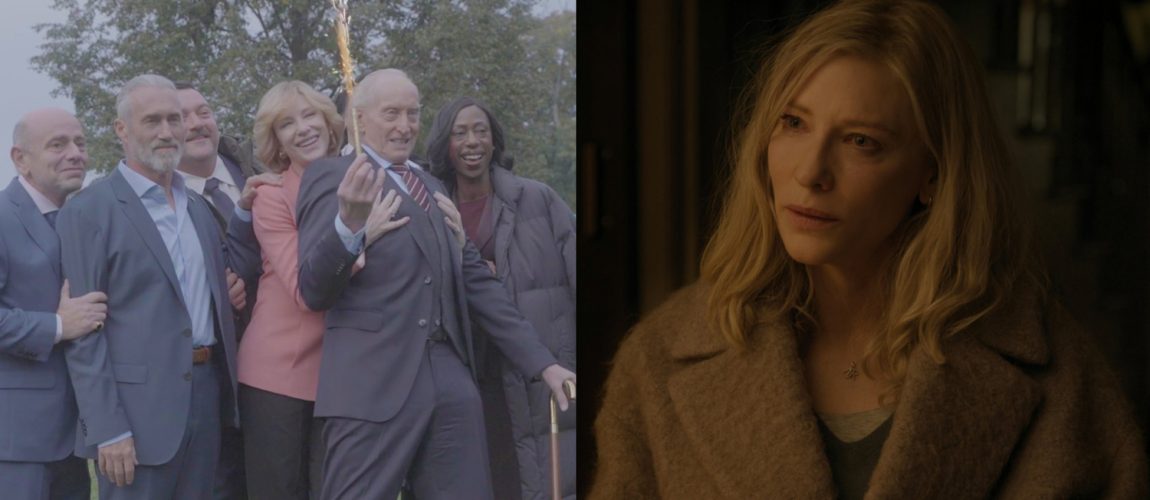
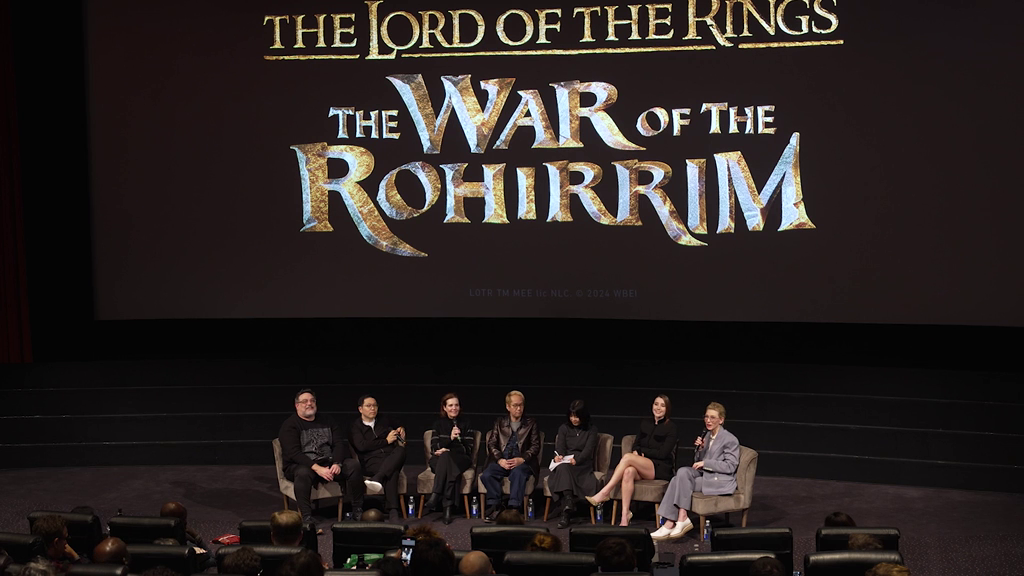
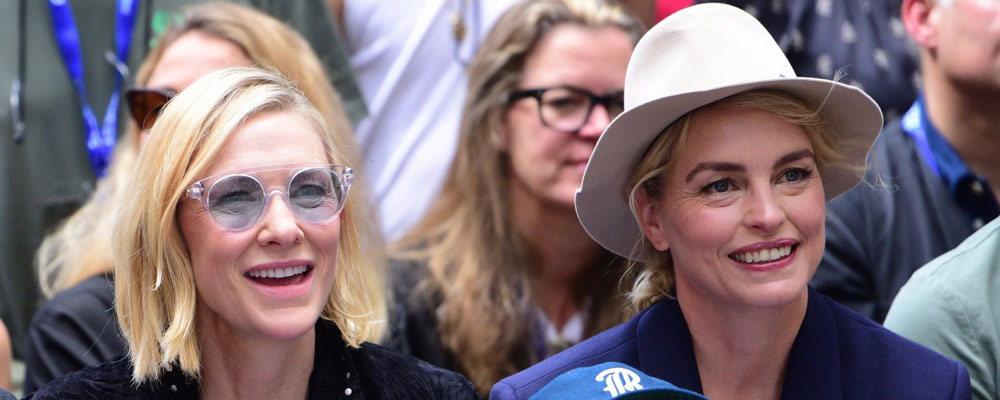
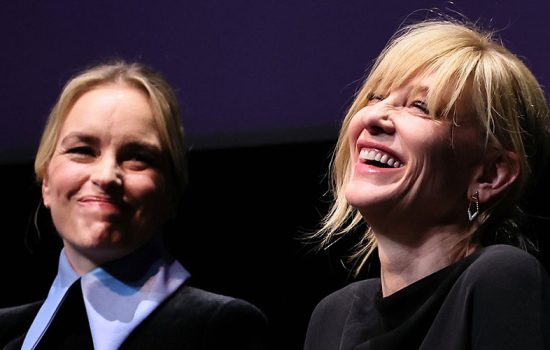
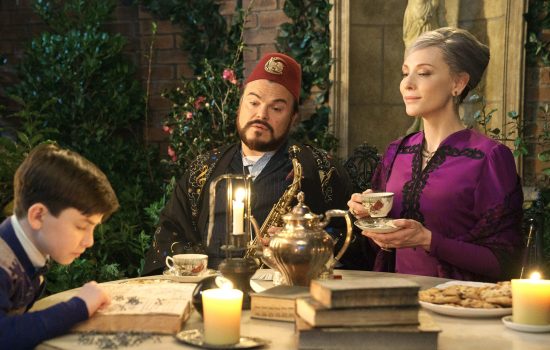

 A Manual for Cleaning Women (202?)
A Manual for Cleaning Women (202?) Father Mother Brother Sister (2025)
Father Mother Brother Sister (2025)  Black Bag (2025)
Black Bag (2025)  The Seagull (2025)
The Seagull (2025) Bozo Over Roses (2025)
Bozo Over Roses (2025) Disclaimer (2024)
Disclaimer (2024)  Rumours (2024)
Rumours (2024)  Borderlands (2024)
Borderlands (2024)  The New Boy (2023)
The New Boy (2023) 











